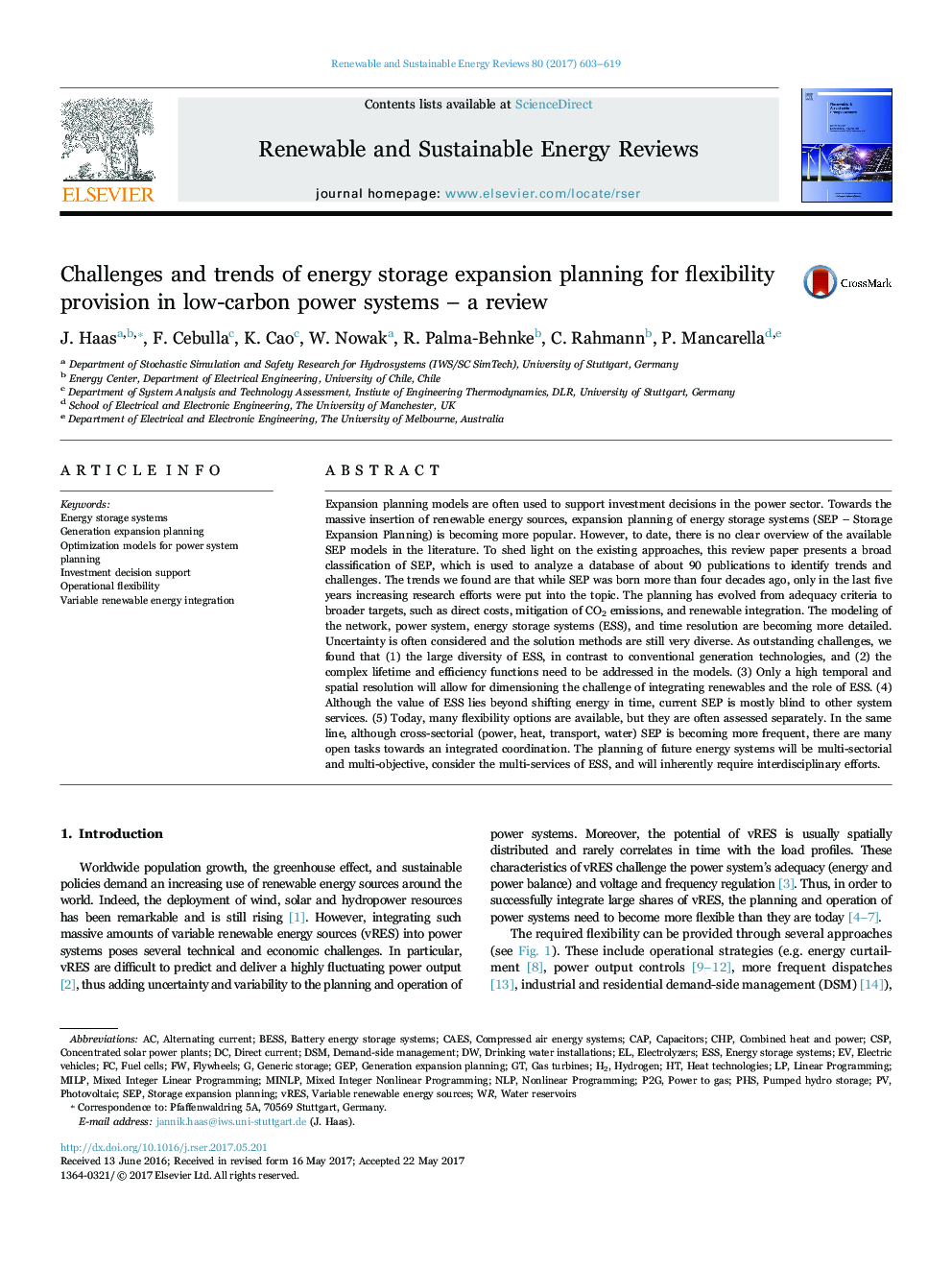| کد مقاله | کد نشریه | سال انتشار | مقاله انگلیسی | نسخه تمام متن |
|---|---|---|---|---|
| 5482082 | 1522306 | 2017 | 17 صفحه PDF | دانلود رایگان |
عنوان انگلیسی مقاله ISI
Challenges and trends of energy storage expansion planning for flexibility provision in low-carbon power systems - a review
ترجمه فارسی عنوان
چالش ها و روند برنامه ریزی برای گسترش ذخیره سازی انرژی برای ارائه انعطاف پذیری در سیستم های کم انرژی کربن - یک بررسی
دانلود مقاله + سفارش ترجمه
دانلود مقاله ISI انگلیسی
رایگان برای ایرانیان
کلمات کلیدی
موضوعات مرتبط
مهندسی و علوم پایه
مهندسی انرژی
انرژی های تجدید پذیر، توسعه پایدار و محیط زیست
چکیده انگلیسی
Expansion planning models are often used to support investment decisions in the power sector. Towards the massive insertion of renewable energy sources, expansion planning of energy storage systems (SEP - Storage Expansion Planning) is becoming more popular. However, to date, there is no clear overview of the available SEP models in the literature. To shed light on the existing approaches, this review paper presents a broad classification of SEP, which is used to analyze a database of about 90 publications to identify trends and challenges. The trends we found are that while SEP was born more than four decades ago, only in the last five years increasing research efforts were put into the topic. The planning has evolved from adequacy criteria to broader targets, such as direct costs, mitigation of CO2 emissions, and renewable integration. The modeling of the network, power system, energy storage systems (ESS), and time resolution are becoming more detailed. Uncertainty is often considered and the solution methods are still very diverse. As outstanding challenges, we found that (1) the large diversity of ESS, in contrast to conventional generation technologies, and (2) the complex lifetime and efficiency functions need to be addressed in the models. (3) Only a high temporal and spatial resolution will allow for dimensioning the challenge of integrating renewables and the role of ESS. (4) Although the value of ESS lies beyond shifting energy in time, current SEP is mostly blind to other system services. (5) Today, many flexibility options are available, but they are often assessed separately. In the same line, although cross-sectorial (power, heat, transport, water) SEP is becoming more frequent, there are many open tasks towards an integrated coordination. The planning of future energy systems will be multi-sectorial and multi-objective, consider the multi-services of ESS, and will inherently require interdisciplinary efforts.
ناشر
Database: Elsevier - ScienceDirect (ساینس دایرکت)
Journal: Renewable and Sustainable Energy Reviews - Volume 80, December 2017, Pages 603-619
Journal: Renewable and Sustainable Energy Reviews - Volume 80, December 2017, Pages 603-619
نویسندگان
J. Haas, F. Cebulla, K. Cao, W. Nowak, R. Palma-Behnke, C. Rahmann, P. Mancarella,
